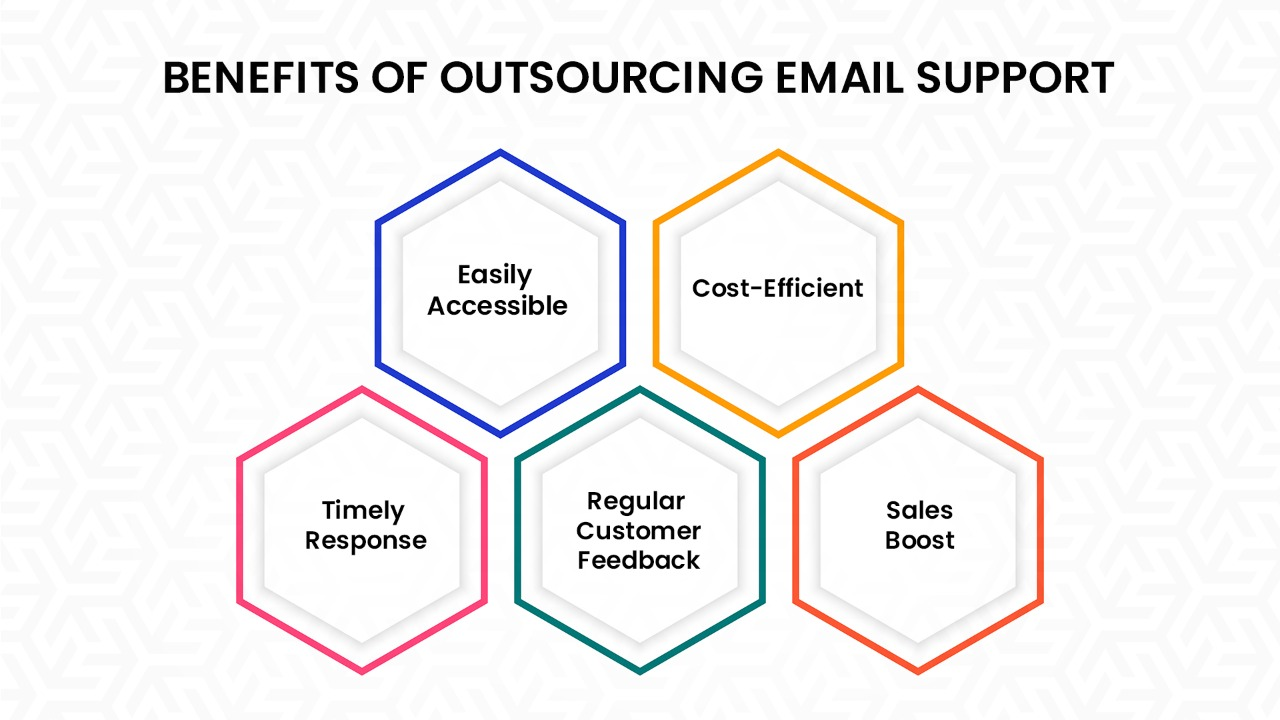Impact of Business Process Outsourcing on Employee Satisfaction and Retention
As companies strive to increase efficiency and reduce costs, business process outsourcing (BPO) has become an increasingly popular solution. By outsourcing non-core functions such as customer service or accounting, businesses can focus on their core competencies while saving money. However, the impact of BPO on employee satisfaction and retention is often overlooked. In this blog post, we'll examine the relationship between BPO and employee satisfaction, explore real-world examples of its impact on retention rates, discuss the role company culture plays in mitigating negative effects, offer best practices for ensuring employee satisfaction during implementation, and look at the future of BPO's potential impact on employees. So let's dive in!
Examining the Relationship Between BPO and Employee Satisfaction
The relationship between Business Process Outsourcing (BPO) and employee satisfaction is a complex and filled with many variables. On the surface level, some may argue that outsourcing leads to job losses and lower morale among employees. However, there are also arguments in favor of BPO as a means of improving employee satisfaction.
One key benefit of BPO is that it can free up employees from mundane or repetitive tasks, allowing them to focus on more meaningful work. This can lead to increased job satisfaction and motivation among employees who feel valued for their skills and knowledge.
On the other hand, if not implemented properly, BPO can lead to feelings of uncertainty and stress among employees who fear losing their jobs or being replaced by outsourced workers. In addition, poor communication during the transition process can exacerbate these negative feelings.
Ultimately, the impact of BPO on employee satisfaction depends on various factors such as company culture and management practices. When done well with clear communication and transparency throughout the process - including involving current staff in training new outsourced teams- BPO has been shown to contribute positively towards overall employee job satisfaction levels.
Case Studies: Real-World Examples of the Impact of BPO on Employee Retention
Real-world case studies have shown that Business Process Outsourcing can have a significant impact on employee retention. One such example is the partnership between American Express and Genpact, a leading BPO company based in India.
Through this collaboration, Genpact was able to take over several operations for American Express, including accounting and finance functions. This allowed American Express to focus on its core competencies while also reducing costs.
Despite some initial concerns about job security among American Express employees whose duties were outsourced, the company maintained transparency throughout the process and continued to provide support and training for affected workers. As a result, many of these employees were eventually rehired by Genpact or found new roles within American Express.
Another example is Deutsche Bank's partnership with Infosys BPO Ltd., which helped streamline various IT processes while also improving efficiency. In this case, employees from both companies worked collaboratively to ensure a smooth transition.
These examples demonstrate how effective communication between companies during BPO implementation can mitigate negative effects on employee satisfaction and retention. By maintaining transparency and providing support throughout the process, companies can help allay fears about job security and create opportunities for career growth within or outside of their organization.
Role of Company Culture in Mitigating Negative Effects of BPO on Employee Satisfaction
A company culture that values its employees can significantly mitigate the negative effects of Business Process Outsourcing (BPO) on employee satisfaction. In a BPO setup, it is crucial to maintain positive relationships between the parent company and the outsourcing partner.
One way to achieve this is by ensuring that both parties are committed to fostering a culture of transparency, honesty, and open communication. When employees feel valued and heard, they are more likely to be motivated and productive despite being part of an outsourced team.
In addition, companies should prioritize training programs for their employees involved in BPO processes. This will not only help them develop new skills but also increase job security by making them integral parts of the organization's overall strategy.
Another effective way to foster positive company culture during BPO implementation is by recognizing employee contributions through rewards and incentives. This helps create a sense of belongingness among employees who may otherwise feel disconnected from their parent organizations due to geographical barriers or language differences.
Maintaining consistency in policies regarding hours worked, compensation packages offered, etc., can go a long way in building trust between all stakeholders involved in the outsourcing process.
Having a strong company culture based on mutual respect and appreciation for diversity can help mitigate negative impacts caused by BPO arrangements while creating lasting benefits for all parties involved.
Importance of Communication and Transparency in Maintaining Employee Satisfaction During BPO Implementation
Effective communication and transparency play a crucial role in maintaining employee satisfaction during BPO implementation. Employees need to be informed about the changes happening within their organization, including the reasons behind them, how they will affect the employees' daily work routine and what is expected of them.
During BPO implementation, companies should maintain open channels of communication with employees through regular meetings, emails or newsletters. It is essential for organizations to listen carefully to their employees' concerns and feedback regarding the outsourcing process.
Transparency is equally important when it comes to BPO implementation. Companies need to be transparent about why they are implementing outsourcing strategies and what benefits this change will bring for both the company and its workforce.
Employees who understand how their roles will change after BPO implementation may feel more motivated about adapting to new ways of working. Clear communication can also help alleviate potential anxieties that workers might have about job security or changes in responsibilities.
In summary, by ensuring effective communication channels between management teams and employees during BPO implementation, businesses can make sure that everyone is on board with any changes being made while still retaining high levels of job satisfaction among staff members.
Best Practices for Ensuring Employee Satisfaction and Retention in BPO Relationships
To ensure employee satisfaction and retention in BPO relationships, companies should implement several best practices. Firstly, it's essential to involve employees in the decision-making process from the outset to provide them with a sense of ownership over the transition. Communication is key during this period, so managers must communicate regularly and transparently about any changes taking place.
Additionally, training programs should be put in place to support employees who need to learn new skills or processes following outsourcing implementation. The company culture also plays an integral role here- creating a positive work environment that values its employees can help mitigate negative impacts on morale.
Another best practice involves offering competitive compensation packages and benefits programs for staff members as well as providing opportunities for career advancement within or outside of the organization. Employee recognition initiatives are also important in ensuring employee engagement and loyalty towards their employer.
Regular feedback sessions should be conducted between management teams and employees; this will allow BPO service providers to address issues proactively while keeping lines of communication open between all parties involved. By implementing these best practices throughout the BPO relationship lifecycle, companies can maintain high levels of employee satisfaction and retention rates while reaping all the benefits that come with outsourcing business processes abroad such as cost savings and improved productivity!
Conclusion: The Future of BPO and Its Potential Impact on Employee Satisfaction and Retention
As we have seen throughout this article, business process outsourcing has a significant impact on employee satisfaction and retention. However, it is important to note that the effects can be both positive and negative depending on how the BPO relationship is managed.Company culture plays a critical role in mitigating any negative effects of BPO on employees. It is crucial for companies to maintain open communication with their employees throughout the implementation of BPO services.
Moreover, best practices such as providing training opportunities for employees and ensuring they are equipped with necessary skills can go a long way in maintaining employee satisfaction and retention during the transition.
As more companies turn towards outsourcing their business processes, it is essential to focus on creating successful partnerships that prioritize both company growth and employee well-being. By doing so, businesses can ensure they are not only meeting their goals but also keeping their employees engaged and satisfied in the long run.
The future looks promising for Business Process Outsourcing (BPO), provided companies continue to implement best practices while managing relationships with service providers. With effective management strategies in place, BPO will continue to provide benefits not just for businesses but also for their valuable workforce.



Comments
Post a Comment